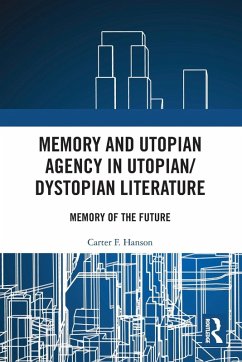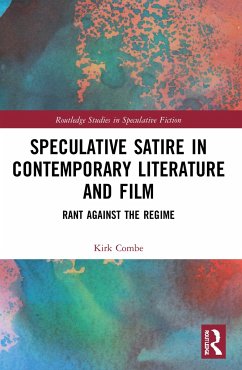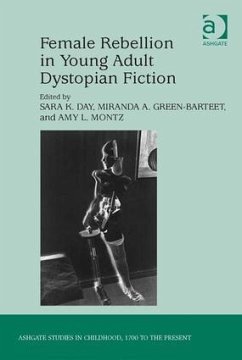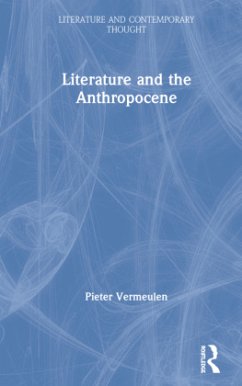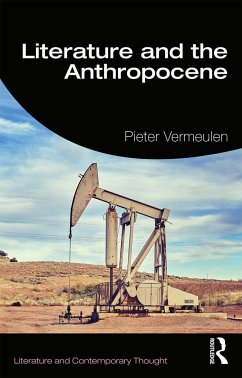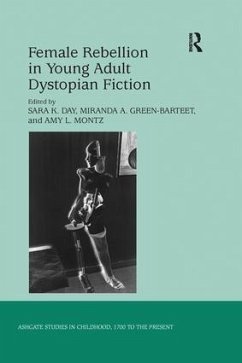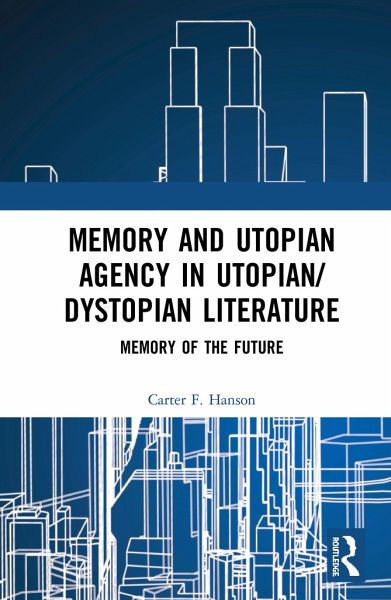
Memory and Utopian Agency in Utopian/Dystopian Literature
Memory of the Future
Versandkostenfrei!
Versandfertig in 6-10 Tagen
154,99 €
inkl. MwSt.
Weitere Ausgaben:

PAYBACK Punkte
77 °P sammeln!
For a genre that imagines possible futures as a means of critiquing the present, utopian/dystopian fiction has been surprisingly obsessed with how the past is remembered.Memory and Utopian Agency in Utopian/Dystopian Literature: Memory of the Future examines modern and contemporary utopian/dystopian literature's preoccupation with memory, asserting that from the nineteenth century onward, memory and forgetting feature as key problematics in the genre as well as sources of the utopian impulse. Through a series of close readings of utopian/dystopian novels informed by theory and dialectics, Hans...
For a genre that imagines possible futures as a means of critiquing the present, utopian/dystopian fiction has been surprisingly obsessed with how the past is remembered.
Memory and Utopian Agency in Utopian/Dystopian Literature: Memory of the Future examines modern and contemporary utopian/dystopian literature's preoccupation with memory, asserting that from the nineteenth century onward, memory and forgetting feature as key problematics in the genre as well as sources of the utopian impulse. Through a series of close readings of utopian/dystopian novels informed by theory and dialectics, Hanson provides a case study history of how and why memory emerged as a problem for utopia, and how recent dystopian texts situate memory as a crucial mode of utopian agency. Hanson demonstrates that many modern and contemporary writers of the genre consider the presence of certain forms of memory as necessary to the project of imagining better societies or to avoiding possible dystopian outcomes.
Memory and Utopian Agency in Utopian/Dystopian Literature: Memory of the Future examines modern and contemporary utopian/dystopian literature's preoccupation with memory, asserting that from the nineteenth century onward, memory and forgetting feature as key problematics in the genre as well as sources of the utopian impulse. Through a series of close readings of utopian/dystopian novels informed by theory and dialectics, Hanson provides a case study history of how and why memory emerged as a problem for utopia, and how recent dystopian texts situate memory as a crucial mode of utopian agency. Hanson demonstrates that many modern and contemporary writers of the genre consider the presence of certain forms of memory as necessary to the project of imagining better societies or to avoiding possible dystopian outcomes.





